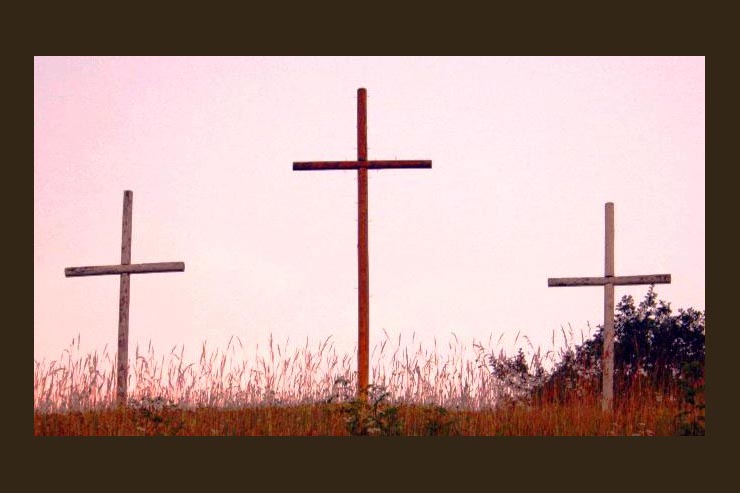Stephen Wolfe is a country scholar in North Carolina who recently authored a book that argues for what he calls “Christian nationalism.” It has come under withering fire from some Christian critics, partly because the first chapter begins with the following quotation by the late Chronicles columnist Sam Francis: “‘Tribal behavior’ is what makes human beings human. Take it away from ‘man’ or ‘humankind’ and what you get is not ‘pure man’ or ‘liberated man’ but dehumanization, and from that, tyranny.”
There is additional context for that quotation in a footnote provided by Wolfe. He explains that it concerns, as Francis said, “[W]hether Christians can celebrate or even observe in public their own religious holidays in a country (or even local community) that is overwhelmingly Christian and has been so throughout its history.” That concern dovetails perfectly with Wolfe’s definition of Christian nationalism, which is stated on the back cover of his book:
the idea that people in the same place and culture should live together and seek one another’s good. The grace of the gospel does not eliminate our geography, our people, and our neighbors. Instead, it restores us to pursue local needs and local leadership freely and without apology.
Wolfe is merely trying to lay an intellectual foundation for Protestants to benefit from the strong connection between religion and a people’s sense of identity. That’s hardly controversial, and historical examples abound. Perhaps surprisingly, the most dramatic and pertinent examples are found in the histories of Catholic nations, not Protestant ones. The reason is that the political and social condition of a typical American deplorable more closely resembles that of an Irish Catholic tenant farmer or a Polish serf than that of the Protestant settlers who largely created America.
The Irish withstood several centuries of English coercion designed to make them Protestant. As Diarmaid MacCulloch noted in his massive history of the first 3,000 years of Christianity, the Irish were the only people in Europe to successfully resist a sustained government effort to change their religion after the Reformation. In another extraordinary case, that of Poland, Catholicism helped the Poles survive first a division of their country between three hostile powers who were determined that there should never again be an independent Poland, then a genocidal Nazi occupation during World War II, and then a somewhat less brutal but still vicious period of Communist rule. Protestantism played a similar role in Estonia and Latvia, but for a shorter period of time and under generally less extreme conditions, after those countries came under Russian rule.
The Irish and the Poles survived their foreign occupiers because, at some point, each decided being Catholic was an integral part of their identity. To cease to be Catholic was to cease to be Irish or Polish. It took a bloody civil war to drive the British out of 20 of Ireland’s 26 historic counties, and Soviet Communism’s encounter with Polish Catholicism proved fatal—for Soviet Communism. That is Christian nationalism, tout court.
Whatever its theoretical underpinnings, then, Christian nationalism can be a potent force for national survival, especially when that survival is being put into question. It is entirely understandable that Wolfe wants Americans to think of Christianity the way the Irish and the Poles came to regard Catholicism, as constitutive of our identity. Contemporary Western thinkers are bothered by any linkage between Christianity and national identity and by any linkage between race or ethnicity and national identity. These worries do not apply to countries that are neither white nor Christian. But anyone who regards a “white Australia” or a “Catholic Poland” with the same indifference, or even approval, that the world shows toward Shinto Japan or Islamic Pakistan is going to be viciously attacked by self-professed conservatives who crave respectability.

Leave a Reply